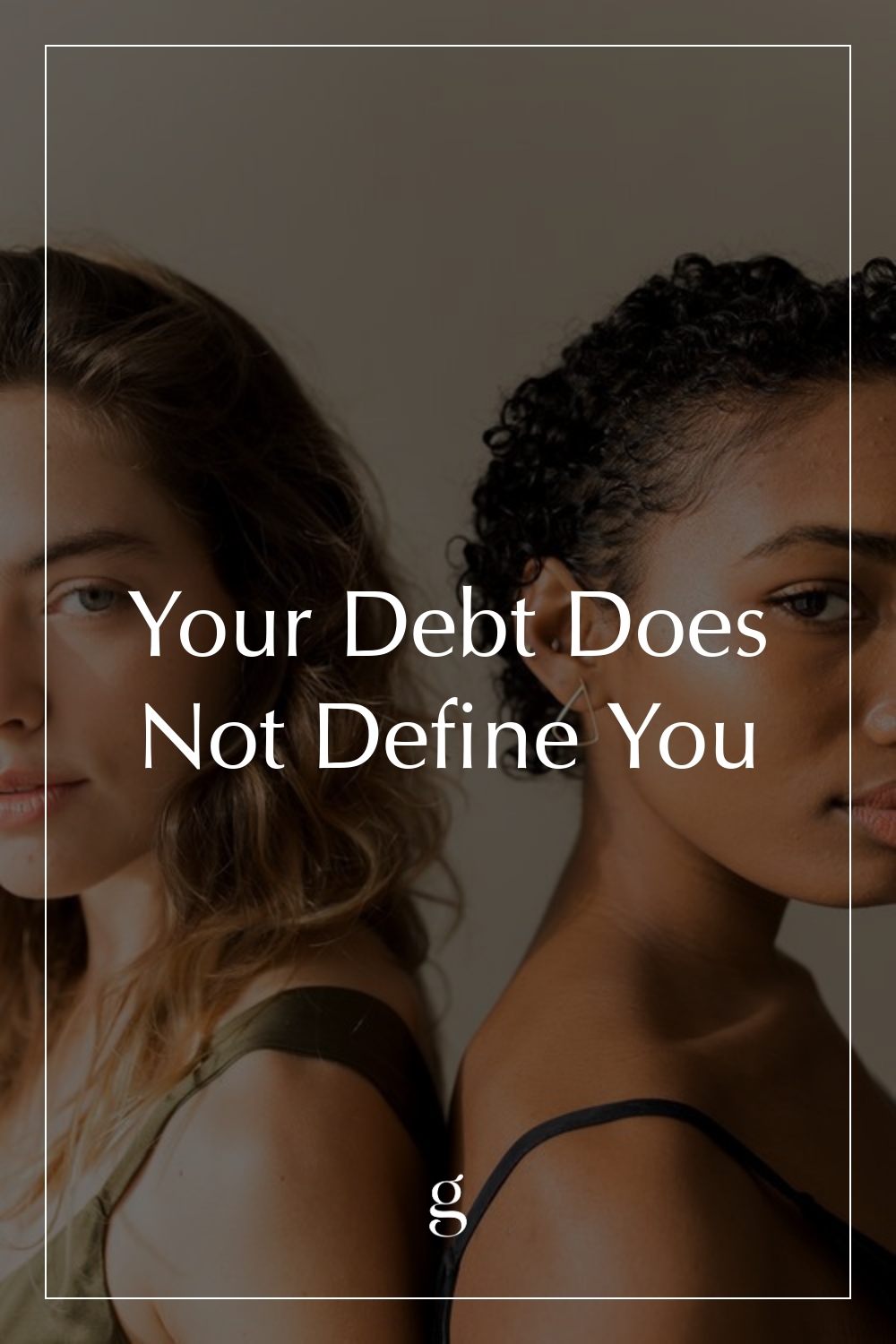
Your Debt Does Not Define You
Your Net Worth Is Not Your Self-Worth
I don’t know if you’ve ever received one of those emails that tell you your bank account has reached zero dollars, but I have. More than once. *Cue the scramble for whatever cash or line of credit I had lying around.*
Each “zero dollar balance” notification reminded me of something I perceived as an even greater failure—that I’ve lived in debt for as long as I’ve been able to vote. You see, I celebrated my emergence into adulthood the American way, with a sip of beer and signing student loan paperwork.
I’ve dabbled in different debts in the decade since. I’m still chipping away at a few remaining back taxes from the years I was an independent contractor and couldn’t afford to pay rent, buy groceries, and make estimated payments in advance. Then there are car payments and credit cards—oh, the credit cards. I spent a substantial chunk of my twenties (and a bit of my thirties) paying down the balance and interest from when I was the parent of a chronically ill pet.
“We often internalize our net worth as our self-worth, as if the numbers in our accounts qualify us to be any more or less human than others.”
Even as I write this, a stack of financing paperwork sits on my desk for a vision procedure that isn’t covered by insurance. Soon, I’ll have 20/20 vision to help me see all the new bills coming in.
For the longest time, I’ve believed my debts to be a qualifier of my character. We often internalize our net worth as our self-worth, as if the numbers in our accounts qualify us to be any more or less human than others.
Even when we go into what some might call “good debt” to pursue higher education, start a business, or purchase a house, these things might not be good enough. I was told that my own pursuit of a creative writing degree meant that I was wasting my money, that this was the bad type of debt. This made me believe that my interests were only valuable, that I was only valuable, if my life’s trajectory prioritized profit over pleasure.
But that is, in fact, very false.
The only reason we employ debt as a tool for judgment is because it’s a clear signpost. But, where the mixup happens is that debt is a man-made concept and not a moral or ethical quality. This idea becomes further muddied by a capitalist society that criminalizes poverty and rewards wealth with more wealth. Even the deceptively wholesome “American dream” was invented by advertisers to encourage spending—the house, the picket fence, the insured minivan full of insured children—many things that are now out of my generation’s reach.
“Debt is a man-made concept and not a moral or ethical quality.”
Look, I’m not saying anyone loves debt. (Other than loan companies.) It’s something that most of us deal with—whether in the form of student loans, car payments, credit cards, or medical bills. But regardless of if it’s intentional or unexpected, it’s time to stop the cycle of judgment and shame around it because it’s only harming us further.
The first step is to allow ourselves to feel what we are feeling—because money is emotional. It can affect where we sleep, what we eat, where we go, and how we spend our time. It is inextricably linked to our existence in this modern world, and it’s understandable to feel vulnerable when money’s scarce.
But I also find great comfort in separating those feelings so I can look at the reality of the situation. I’ve found that certain types of debt aren’t as urgent as others and can be met more healthily with a measured and steady response. (That alone lowers my blood pressure substantially). We can acknowledge the heavy emotional and financial burdens of debt while still working through them and celebrating the little wins.
Then, we can remember the agency we do have. I’ve found empathetic friends who will drink cheap coffee and eat scrambled eggs at home with me—because spending time together is more important than spending money. If I find myself spiraling through personal finance advice that I can’t afford to take, that’s a key time to practice affordable self-care or find ways to explore embodiment and ground myself in the moment.
“Remembering what brings us joy beyond a paycheck brings us back to who we are apart from our routing number.”
When I’m feeling particularly floaty and gracious, I’ll view even the most overwhelming expenses from a lens of gratitude. We can’t always force this though, and that’s okay. What we can do is take stock in what we have beyond money: pets, friends and family, photographs and memories. Remembering what brings us joy beyond a paycheck brings us back to who we are apart from our routing number.
I heard something amazing in a podcast a long time ago that has resonated with me for many years: you can lose all your money, but you can’t lose your ability to make money. There’s certainly a lot to unpack around the ability to make money, and it’s not always that simple, but I do enjoy the sentiment. So I’ve updated it:
We can lose what we have, but we cannot lose who we are.
We have value beyond our net worth—we are not a number on a page but worthy, complex, and unique people. And even in the face of scarcity, we are whole.
“We can lose what we have, but we cannot lose who we are.”
RELATED READING
Emily Torres is the Managing Editor at The Good Trade. Born and raised in Indiana, she studied Creative Writing and Business at Indiana University. You can usually find her in her colorful Los Angeles apartment journaling, caring for her rabbits, or gaming. Read more of her creative writing over on Notes To Self!


